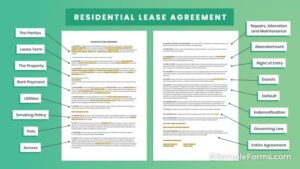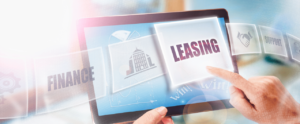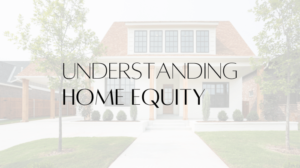
Welcome to the whimsical world of Business leasing, where you can have your cake and lease it too! Imagine a realm where companies get to use shiny equipment, snazzy office spaces, and fabulous vehicles without feeling the financial pinch of buying them outright. Business leasing is like renting the hottest items in town but for businesses – perfect for those who want to stay trendy while keeping their cash flow lively!
This concept isn’t just about having the latest tech or trendy office furniture; it’s about enhancing your company’s financial flexibility and strategic growth. With a variety of lease types to choose from, businesses can tailor their leasing agreements to suit their unique needs, all while dodging hefty upfront costs and keeping their business budgets dancing!
Understanding Business Leasing
Business leasing is like renting a fancy tuxedo for a wedding; you get the benefits without the commitment of permanent ownership. This arrangement allows companies to use assets, such as equipment or office space, without the hefty price tag of outright purchase. It’s significant because it provides businesses with the flexibility to grow and adapt while maintaining their cash flow—no one likes to be cash-poor, especially when there’s an opportunity to splurge on office snacks!Business leasing can take many forms, each with varying implications for companies.
The most common types include operating leases and finance leases. An operating lease is akin to borrowing a book from a library—you’re enjoying the benefits without adding it to your collection. Companies can return the asset at the end of the lease term, making it perfect for assets that might become obsolete or need to be upgraded frequently. On the other hand, a finance lease is more like an installment plan for a car; it allows businesses to eventually own the asset, typically after paying off a series of scheduled payments.
This method is great for companies looking to invest long-term without an upfront capital outlay.
Types of Business Leases and Their Implications
Understanding the types of business leases is crucial for making informed financial decisions. Here’s a look at the major lease types that businesses frequently consider, along with their implications:
- Operating Lease: Ideal for short-term use of assets, where the business does not retain ownership at the end of the lease. Great for tech companies that need to stay current.
- Finance Lease: Provides the option to purchase the asset at the end of the lease term. This is often beneficial for manufacturing firms that require machinery on a long-term basis.
- Sale and Leaseback: A company sells its asset and immediately leases it back. This can free up capital while still allowing usage of the asset. Think of it as selling your favorite vintage guitar but still jamming with it every weekend!
- Capital Lease: Similar to a finance lease, this type may involve lower payments with the intent to purchase. Ideal for businesses that want to build equity in expensive equipment.
Various industries leverage business leasing to optimize their operations. The technology sector often leases computers and servers to stay ahead of rapid advancements. Construction companies lease heavy machinery to avoid the high costs of ownership while also bypassing maintenance hassles. Healthcare facilities frequently lease medical equipment, ensuring they have the latest technology without the burden of ownership. In summary, business leasing supports financial flexibility and operational efficiency across myriad industries, enabling companies to thrive in an ever-evolving marketplace.
Remember, in the world of business leasing, flexibility is king—and no one likes a cash flow crunch!
Financial Aspects of Business Leasing

Business leasing can be a financial game-changer for companies, akin to having a secret weapon in a boardroom battle. It’s not just about getting shiny new equipment or vehicles; it’s about how this strategy influences cash flow and financial health. With a careful balance, leasing can keep your balance sheet looking more mint than a fresh pack of gum.Business leasing impacts a company’s cash flow by allowing access to necessary assets without the hefty upfront costs that come with buying.
Instead of pouring all your funds into a single purchase, leasing spreads the cost over time, which can mean more liquidity to invest back into the business or to keep the coffee machine stocked (a crucial element for any workplace!). Additionally, leasing payments are often considered operating expenses, which can be beneficial when it comes to tax time.
Comparison of Leasing vs. Buying
When comparing leasing to buying, the long-term financial outcomes can vary significantly. Leasing might seem like a wallet-friendly option in the short term, but it’s essential to consider the long-haul impact on your finances. Here’s a quick breakdown:
| Aspect | Leasing | Buying |
|---|---|---|
| Initial Cost | Lower (often just first payment and possibly a security deposit) | Higher (full purchase price upfront) |
| Cash Flow Impact | Less strain, as payments are spread over time | Potentially tightens cash flow immediately |
| Asset Ownership | No ownership (at least until the end of the lease) | Ownership of the asset, with potential resale value |
| Maintenance Costs | Often covered by the lessor (check your lease agreement) | All on the owner’s dime |
| Tax Benefits | Leasing payments can be tax-deductible | Depreciation can offer tax benefits, but only over time |
Understanding these financial nuances can help businesses make informed decisions that align with their financial strategy. Thoughtful analysis reveals that leasing could allow for more flexibility and less financial strain than buying outright, which may be as appealing as a surprise bonus check, especially in tough economic times.
“Leasing is like renting a pair of fancy shoes; you get to enjoy them without committing to a long-term relationship!”
Strategies for Successful Business Leasing

When it comes to business leasing, it’s not just about signing on the dotted line and crossing your fingers. Successful leasing is all about strategy, negotiation prowess, and a dash of financial savvy. Think of it as a game of chess: every move counts, and the right strategy can lead you to victory—or at least to the best space for your burgeoning empire.
Let’s dive into the fine details of how to master this art.
Best Practices for Negotiating Lease Terms
Negotiating lease terms is akin to bartering at a flea market—everyone wants a good deal, but only the canny will walk away with a treasure. Here are some practices to help you secure favorable terms that benefit your business:
- Do Your Homework: Research the market to understand prevailing rates and terms. Knowledge is power, and in this case, it can also mean lower monthly payments.
- Start with a Win-Win Mindset: Approach negotiations with the idea that both parties should benefit. A happy landlord might just be more amenable to your requests.
- Ask for Flexibility: Request options for future expansions or reductions in space. Think ahead—today’s small office could be tomorrow’s corporate headquarters!
- Be Prepared to Walk Away: Sometimes the best leverage in negotiations is the willingness to say, “Thanks, but no thanks.”
- Get Everything in Writing: If it’s not on paper, it didn’t happen. Ensure all negotiated terms are documented to prevent misunderstandings later.
Managing Lease Agreements Effectively Over Time
Once you’ve secured that ideal space, managing your lease effectively is crucial to long-term success. A well-managed lease can be the difference between smooth sailing and a financial shipwreck. Here are leading tips for keeping your lease on track:
- Regular Reviews: Set reminders to review your lease terms periodically. Keeping an eye on your agreement helps catch potential issues before they become major headaches.
- Maintain Open Communication: Establish a friendly rapport with your landlord. A good relationship can lead to easier negotiations for renewals or adjustments.
- Document Everything: Keep a detailed record of all communications and modifications regarding your lease. This makes resolving disputes easier, should they arise.
- Know Your Rights: Familiarize yourself with local laws and regulations regarding leases. Knowing your rights can empower you to advocate for yourself effectively.
- Prepare for Renewals: Start early when it’s time to renew. Research market rates and be ready to negotiate favorable terms well before the lease ends.
Importance of Credit Counseling and Debt Consolidation
In the realm of business leasing, your credit score can be more influential than a magic eight ball. Understanding its impact and seeking professional guidance when necessary can pave the way for better leasing options. Here’s why credit counseling and debt consolidation matter:
- Improved Credit Ratings: Working with a credit counselor can help you tackle debt, which can lead to improved credit scores. A better score often translates to more favorable lease terms.
- Debt Consolidation Benefits: Combining multiple debts into a single payment can lower your monthly expenses, freeing up cash flow for lease payments.
- Access to Better Opportunities: A healthy credit profile opens doors to more leasing options, enabling you to negotiate terms that align with your business goals.
- Financial Literacy: Credit counseling educates business owners on managing finances effectively, which is critical for long-term sustainability in leasing decisions.
- Stress Reduction: Less debt means less stress. A clear financial picture allows you to focus on your business instead of worrying about lease obligations.
Outcome Summary
In summary, Business leasing can be a game-changer for companies looking to thrive in a competitive landscape. From improved cash flow management to the ability to upgrade equipment without breaking the bank, it’s clear that leasing offers a treasure trove of opportunities. So whether you’re a small startup or a seasoned enterprise, remember that with the right lease, you can keep your business on the cutting edge while still saving a penny or two!
Essential Questionnaire
What is a business lease?
A business lease is a contract that allows a company to use an asset, like equipment or property, without owning it, usually in exchange for regular payments.
How does business leasing affect cash flow?
Leasing can help preserve cash flow by spreading out payments over time, allowing businesses to maintain funds for other expenses.
Are there tax benefits to leasing?
Yes, lease payments can often be deducted as business expenses, which can lower taxable income and provide potential tax savings.
What types of businesses benefit most from leasing?
Industries like technology, healthcare, and construction often benefit from leasing, as they require expensive equipment that frequently needs updating.
What should I look for in a lease agreement?
Key factors include lease length, payment terms, maintenance responsibilities, and whether there are options to buy the asset at the end of the lease.





